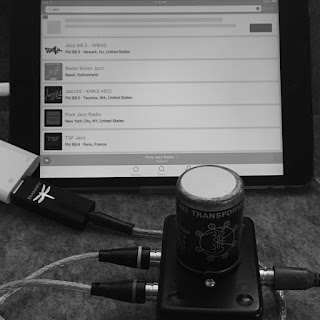The FM tuner has been a de rigeur music source in my audio system. Between the dwindling quality of FM broadcasts and proliferation of internet radio and music streaming apps like Pandora, Spotify, Tidal etc., I had to jump the bandwagon with my first generation iPad mini.
Monday, July 16, 2018
Sunday, July 1, 2018
Lafayette SK98 Reunion

Many years ago, I wrote about vintage Japanese drivers. From that survey, the 8" Lafayette SK98 aka Pioneer PIM8L full range driver emerged as a favorite due to its vivid midrange, balanced by respectable high and low frequency extension. Thinking that I could easily find replacements, I eventually unloaded both pairs to friends who didn't have the budget for Altec 755As.
 |
| 16Ω Pioneer PIM8L with a Hamlin's badge |
 |
| 16Ω Hamlin's in Altec 618 clone cabinets |
Over a decade has elapsed and I am happily reunited with a pair, courtesy of my friend at Junkyard Jukebox. He believed that his treasured pair in Altec 618 clone cabinets should be in the JE Labs collection.
Welcome back old buddy and thanks J-Rob!
Subscribe to:
Comments (Atom)

